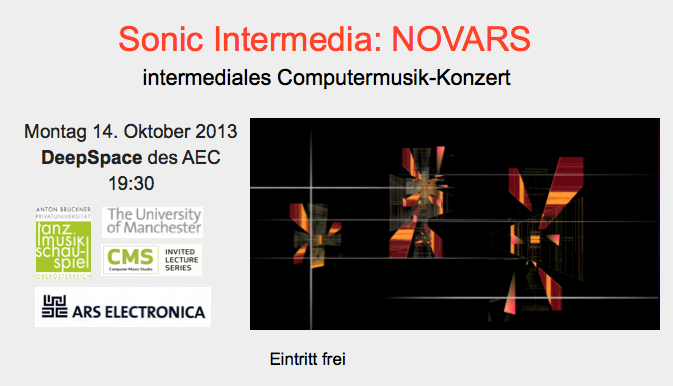
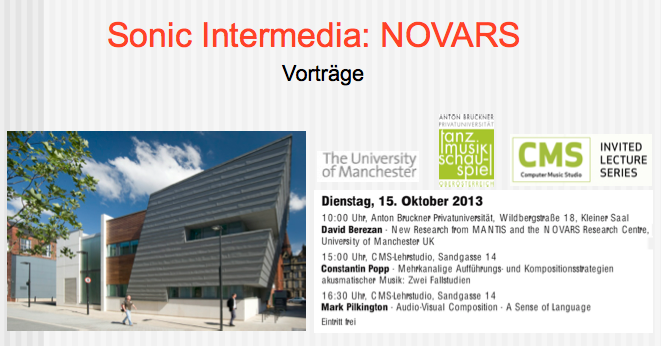
SonicIntermedia: NOVARS
intermediale Konzert und Vortagsreihe
14. - 15. Oktober 2013
Sonic Intermedia
ist eine internationale Konzert- und Vortragsreihe initiert
von den KomponistInnen und MedienkünstlerInnen Andreas Weixler und Se-Lien Chuang mit
dem künstlerischen Leiter des AEC Gerfried Stocker um zeitgenössischer
intermedialer Computermusik ein Präsentationsformat in Linz
zu geben, das Einblick gibt in die Arbeit von hochkarätigen
KomponistInnen, ForscherInnen, MedienkünstlerInnen und
MusikerInnen.
Die Gäste bei SonicIntermedia 2013 sind NOVARS
Manchester, UK und die britische elektrokaustische
Komponistin Manuella Blackburn.
NOVARS
is a Research Centre started in March 2007 with specialisms
in areas of Electroacoustic Composition, Performance and
Sound-Art. NOVARS is named to reference and celebrate the
seminal work by Francis Dhomont (Novars). In his own words
'a reversed version of Ars Nova' - New Art, New Science. We
are grateful for his permission to use his title. Staff and
postgraduate student research areas range from acousmatic
composition to machine musicianship, sound spatialisation,
sound and architectonic spaces, performance practice, live
interactive systems and cross-disciplinary projects. In
Education areas, NOVARS is supporting and reinforcing an
existing well-integrated music pathway both at Postgraduate
and Undergraduate levels, merging areas of electroacoustic
composition, instrumental composition and music theater,
including experimental and contemporary performance
practice.
NOVARS: http://www.novars.manchester.ac.uk
ABPU: http://www.bruckneruni.at
ars electronica center: http://www.aec.at/
DeepSpace: http://www.aec.at/center/ausstellungen/deep-space/
CMS: http://www.bruckneruni.at/Musik/Dirigieren-Komposition-Musiktheorie/Computer-Music-Studio
Atelier Avant Austria: http://avant.mur.at
more SonicIntermedia: http://avant.mur.at/concerts/SonicIntermedia/
http://www.bruckneruni.at/Veranstaltungen/Gaeste-und-Besonderes/Sonic-Intermedia-Novars


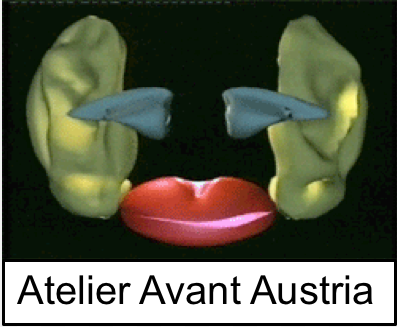
intermediales
KONZERT
14. Oktober 2013
Ars Electronica Center, Linz - DeepSpace
19.30
Werke von und mit
David Berezan, Manuella Blackburn, Constantin Popp, Claudia
Larcher,
Mark Pilkington, Andreas Weixler und Se-Lien Chuang
Elektroakustische, intermediale Kompositionen, audiovisuelle
Echtzeitprozesse, Video- und Medienkomposition
http://www.aec.at/center/2013/09/04/sonic-intermedia-novars/
FLYER concert

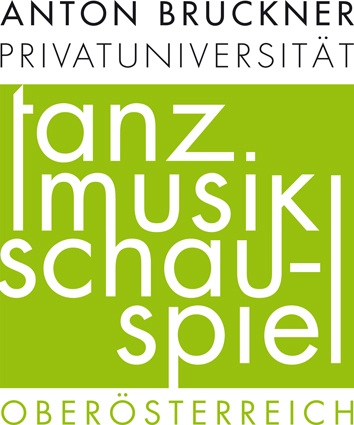
VORTRÄGE - CMS invited lecture series
David Berezan
New Research from MANTIS and the NOVARS Research Centre,
University of Manchester UK
Anton Bruckner Privat
Universität - kleiner Saal
Wildbergstrasse 18
DIE 15. Oktober 2013, um 10:00 Uhr
Constantin Popp
Mehrkanalige Aufführungs- und Kompositionsstrategien
akusmatischer Musik: Zwei Fallstudien
CMS - Lehrstudio, Sandgasse 14
DIE 15. Oktober 2013, um 15.00 Uhr
Mark Pilkington
Audio-Visual Composition - A Sense of Language
über die audiovisuelle Arbeit "Birth"
CMS - Lehrstudio, Sandgasse 14
DIE 15. Oktober 2013, um 16.30 Uhr
http://avant.mur.at/weixler/studinfo/studinfo_events.html#cms-invited
FLYER lectures

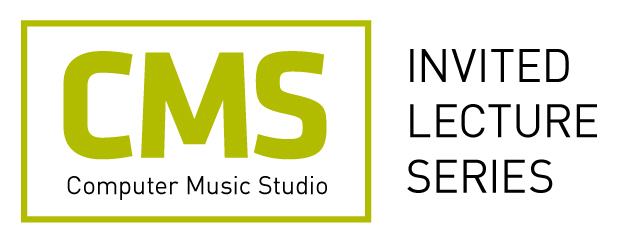
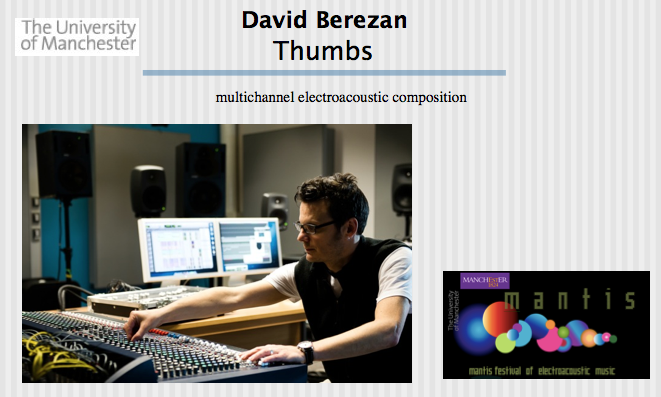
David Berezan
After completing a BA in History (1988) at the University of
Calgary, a Diploma in Composition (1996) at Grant MacEwan College
(Edmonton) and a MMus in Composition (2000) at the University of
Calgary, David Berezan moved to the UK and completed a PhD in
Electroacoustic Composition (2003) at the University of Birmingham
(UK). In 2012 he was appointed Professor in Electroacoustic Music
Composition at the University of Manchester, where he has acted,
since 2003, as Director of the Electroacoustic Music Studios and
MANTIS (Manchester Theatre in Sound).
Since 2000 he has primarily composed acousmatic music, though he has
also composed and performed solo and ensemble live-electronics
works. He has been awarded in the Music Viva (Portugal, 2012),
Bourges (France, 2002), Luigi Russolo (Italy, 2002), Radio Magyar
(Hungary, 2001), São Paulo (Brazil, 2003, ’05), L’espace du son
(Belgium, 2002) and JTTP (Canada, 2000) competitions. He has worked
in residence in the studios of the University of Calgary (Canada,
2011), University of Montreal (Canada, 2011), CMMAS (Mexico, 2011),
EMS (Sweden, 2011, 12), VICC (Sweden, 2011, 12), The Banff Centre of
the Arts (Canada, 2000, 07), ZKM’s Institut für Musik und Akustik
(Germany, 2007), GRM (France, 2007), IMEB (France, 2007), ESB
(Switzerland, 2005), and Tamagawa University (Japan, 2007).
Thumbs (2011) [8-channels]
Thumbs uses a single plucked sound from a Balinese thumb piano as
its primary sound source, subjected to transformations of pitch
and grain, and explored in multi-channel space. I aimed to reduce
the variety of sound-types and materials used in the work as much
as possible, while still creating an engaging and evolving
soundworld. A number of spoken expressions that include 'thumb'
came to mind during the composition of the piece (rule-of-thumb,
all-thumbs, thumbing through, thumbs-up/down, under thumb). These
acted, at some level, as informers upon the work.
Thumbs was realized in the electroacoustic music studios of CMMAS
(Morelia, Mexico), University of Calgary and University of
Montreal, and premiered August 12, 2011, Places for our ears to
go… — Sound Travels Festival of Sound Art, Wychwood Theatre
(Toronto, Ontario, Canada).
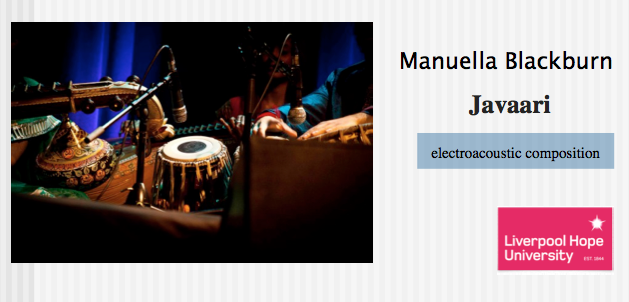 Foto
by Milapfest
Foto
by Milapfest
Manuella Blackburn
is an electroacoustic music composer who specializes in acousmatic
music creation. However, she also has composed for instruments and
electronics, laptop ensemble improvisations, and music for dance.
She studied music at The University of Manchester (England, UK),
followed by a Masters in Electroacoustic Composition with David
Berezan. She became a member of Manchester Theatre in Sound (MANTIS)
in 2006 and completed a PhD at The University of Manchester with
Ricardo Climent in 2010.
Manuella Blackburn has worked in residence in the studios of Miso
Music (Lisbon, Portugal), EMS (Stockholm, Sweden), Atlantic Centre
for the Arts (Florida, USA), and Kunitachi College of Music (Tokyo,
Japan).
Her music has been performed at concerts, festivals, conferences and
gallery exhibitions in Argentina, Belgium, Brazil, Canada, Chile,
Costa Rica, Cuba, France, Germany, Italy, Japan, Korea, Mexico,
Portugal, Spain, Sweden, and the USA.
Manuella Blackburn has received a number of international awards and
prizes for her acousmatic music including: Grand Prize in the
Digital Art Awards (Fujisawa, Japan, 2007), First Prize in the 7th
and 10th Concurso Internacional de Composição Electroacústica Música
Viva (Lisbon, Portugal, 2006, ’09), 3rd Prize in the Diffusion
Competition (Ireland, 2008), Public Prize in the Concurso
Internacional de Composição Eletroacústica (CEMJKO, Brazil, 2007)
and Honorary Mentions in the Centro Mexicano para la Música y las
Artes Sonoras (CMMAS) competition (Morelia, Mexico, 2008) and in the
Concurso Internacional de Música Eletroacústica de São Paulo (CIMESP
’07, Brazil).
She is currently a lecturer in Music at Liverpool Hope University
(England, UK).
http://www.manuella.co.uk
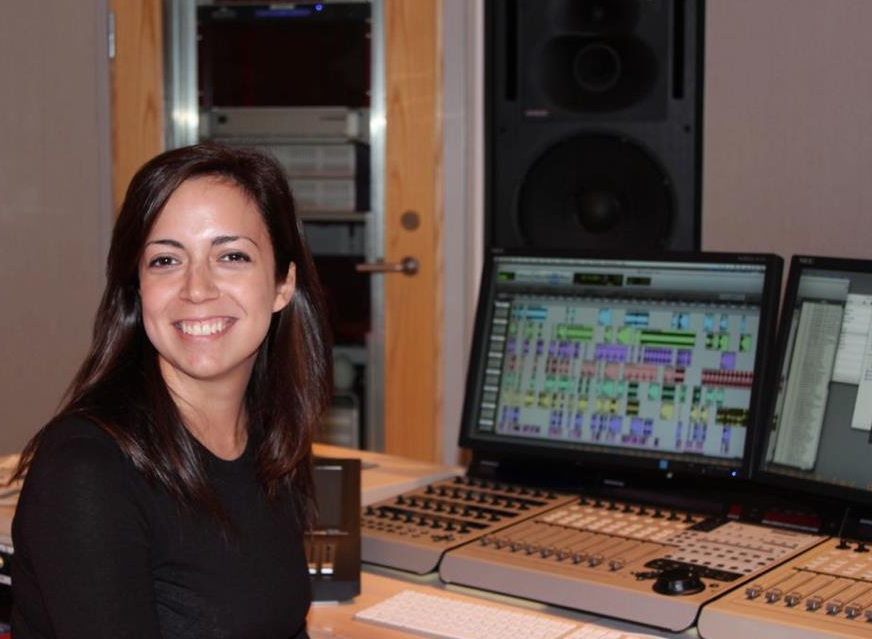 Foto
by Sten Meiin
Foto
by Sten Meiin
Javaari (2013)
electroacoustic
composition
Javaari is the term given to the bridge of the sitar where the
melodic and sympathetic strings run and create the sound. The
bridge is made traditionally of Deer horn and is made in a
certain shape, width, and length, while the surface is flat with
slight semi-circle bend. The term also refers to the unique
buzzing tone produced by the sitar. This piece explores these
fascinating timbres originating from this instrument and pays
particular attention to the beautiful pitch bends that arch over
and under like vocal melismas. The work is structured into four
episodes, each exploring a different intensity of explicit
cultural sound use – often the sitar material is in the fore and
sometimes it recedes or pokes through
intermittently.
This acousmatic work is the first in a series of pieces composed
in collaboration with Milapfest (The UK’s leading Indian Arts
Charitable Trust) based at Liverpool Hope University. The
yearlong project aims to examine the translation and
transference of cultural sound to electroacoustic music and is
funded by the Arts and Humanities Research Council (AHRC).
Many thanks go to Roopa Panesar (Sitar), Kousic Sen (Tabla),
Raaheel Husain (Sitar), Kiruthika Nadarajah (Violin), Senthan
Nadarajah (Mridangam) Kaviraj Singh (Santoor), Upneet Singh
(Tabla) and Rohan Kapadia (Tabla).
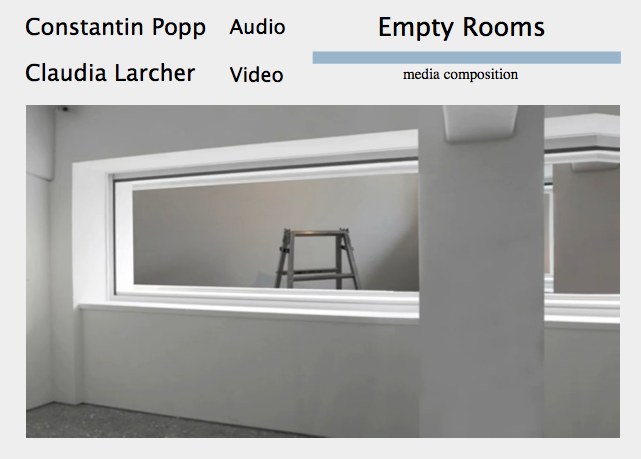 videostill: Claudia Larcher
videostill: Claudia Larcher
Constantin Popp
born in Berlin 1980, studied electroacoustic composition at the
Hochschule für Musik Franz Liszt in Weimar with Robin Minard and at
the University of Manchester with David Berezan. The German Academic
Exchange Agency (DAAD), the Arts and Humanities Research Council and
Victor Sayer fund his PhD research at the University of Manchester,
UK.
He collaborated, among others, with Andreas Bick, laborgras, Jan
Wagner, Johannes Mayr, Robin Minard and Markus Wintersberger, doing
works for dance, film, radio and stage. Furthermore commissions were
received from "pèlerinages Kunstfest Weimar", the "Deutscher
Musikrat" and Swiss Radio DRS2. He worked at the
Friedrich-Schiller-Universtity Jena, Hochschule für Musik Franz
Liszt Weimar, the ETH Zürich, HfK Bremen, Experimentalstudio des SWR
Freiburg and the University of Manchester. He has been giving
workshops in SuperCollider, live-electronics and electroacoustic
composition. Since 2007 he's been also engaging in improv with
live-electronics, performing, for example, with Antoni Beksiak
(Touring Sounds), David Berezan, Ludger Hennig, laborgras and Hervé
Perez in various places throughout Europe.
Claudia Larcher,
born 1979 in Bregenz, studied sculpture, multimedia and intermedia
art at the University of Applied Arts, Vienna. Since 2005, she
participates in exhibitions in Austria and abroad in the fields of
video animation, installation and LiveVideoPerformance.
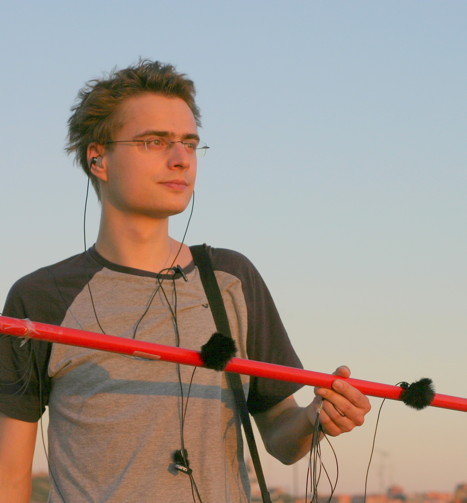 Foto: Malgorzata Cnota
Foto: Malgorzata Cnota
empty rooms
The Novars studio’s quiet soundscape served as the initial
(emotional) starting point of “empty rooms”. Because the studios
are sonically highly insulated, sounds from outside of the studio
are almost fully blocked and previously unheard sounds suddenly
creep into the user’s perception: The quiet transformer hums of
the various electronics in the studios become audible, as well as
the occasional chattering of other studio users behind doors or
the slight distant rumble of passing trucks. But all those sounds
occur on very, very low sound level, contrasting highly with the
loud soundscapes of Manchester with it’s raving city centre and
bar’s. In a way, both sonic states encroach the listener’s
personal space equally: Both force him/her into the Now, pushing
him/her out of the state of pure observation, either through
silence as he/she becomes aware of his own overloaded senses, or
through being overwhelmed by a massive wall of sound. “Empty
rooms” aims to recreate this change in perception from observation
to active part-taking and delicate blend of spaces bleeding into
other spaces. It harnesses the physicality and power of
encroaching the listener’s personal space through interlocked
recordings of unpopulated spaces, mechanised spaces and
overwhelming noise.
Video: Claudia Larcher, http://www.claudialarcher.com
Audio: Constantin Popp
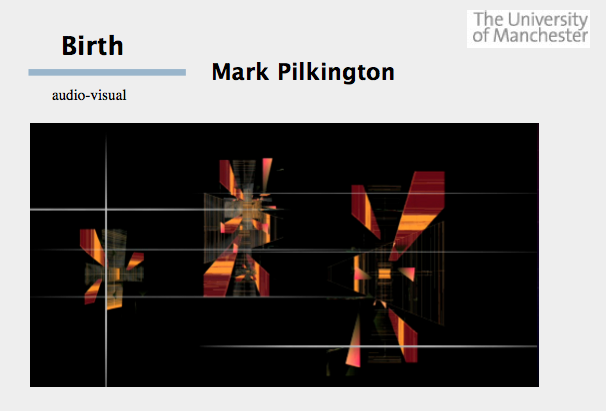 video still: Mark
Pilkington
video still: Mark
Pilkington
Mark Iain Pilkington
is a composer and performer of electroacoustic music.
PhD 'Portfolio of Original Compositions’ (2009-2012), University of
Manchester UK.
MA in Electroacoustic Composition (2003/04), University of
Huddersfield UK.
He composes for solo instruments and ensembles, electronics
and instruments, solo electronics, collaborative interdisciplinary
work and acousmatic music. Research areas audio-visual music,
installation and live performance. From 2009, he became a
member of MANTIS (Manchester Theatre in Sound).
Awards and Commissions :
- Morphogenesis 5.1 - Turing 100 Conference, Manchester UK (2012)
- Bathing in Sound and Light - Installation RNCM (2011)
- 'A Tribute to Nam June Paik' - FACT and TATE Liverpool (2010)
-PUSH Festival - IDKA - Sweden (2009).
- ACE Summer Intensive Electroacoustic Workshop at the Centre de
Création Musicale Iannis Xenakis (CCMIX) in Paris, France (2005).
- 'Audio/Visual' composition at the BETA conference at FACT
Liverpool (2005)
As the recording artist Thought Universe, his music is published
by - Thought Universe Music (UK), Skam (UK), Sonic World
Service (UK), Mainline (DK), DalRiada (UK) and Recordcamp (USA). He
has performed in the UK, Europe and the USA. With radio
broadcasts around Europe via the EBU.
Freelance lecturer /educator.
Mark also runs his own audio-visual label called ‘TUM'
www.markpilkington.org.uk
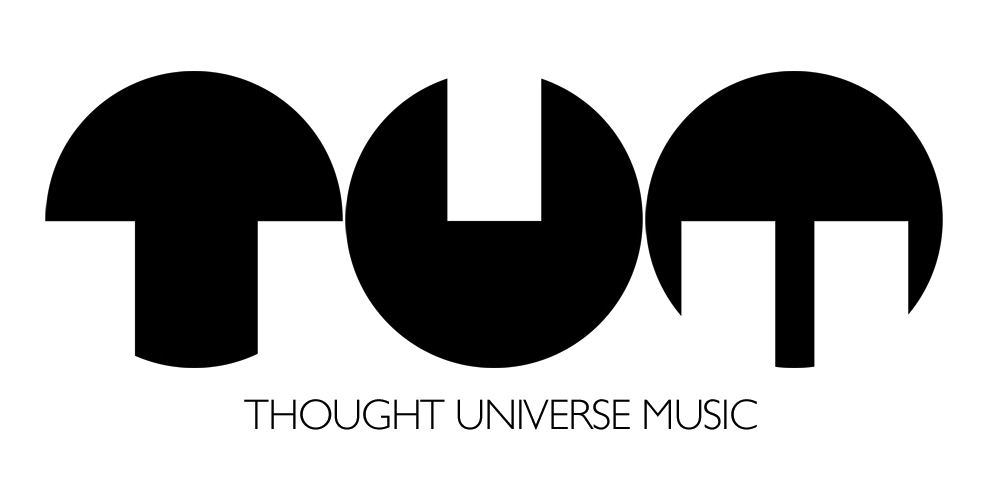
 Foto: Glenn Boulter
Foto: Glenn Boulter
Birth (2011)
Audio-visual
Duration 10'18
Birth is a kinetic film that combines computer geometrical forms
and electroacoustic sounds. Investigating the abstract
morphologies that lay within the integration of audio-visual media
by searching for correspondences between musical and pictorial
harmony. By ultising a palette of organic and architectonic
audio-visual media, Birth forms correspondences within and beyond
the screen. The metamorphosises of form, through kinesthetic
intervention, are consolidated in virtual spatial-temporal
landscape. The audio-visual entities that exist there
rapidily change, avoiding resolution to encourage intensity
through the apparent motion of materials.
Birth is inspired by the early avant-garde film makers such as
Oskar Fischinger Motion Painting (1947), Viking Eggeling Diagonal
Symphony (1925), Hans Richter Rhythmus 21 (1921) and the unique
animation style of Yoshinira Kanada, Nausicaä of the Valley of the
Wind (1984).
Sound materials recorded at a variety of geographical locations,
Tenerife, Spain and Manchester, UK :
- Rocks fall into a 'barranco', Tenerife, Spain.
- Shouts and handclaps in a deserted underground car park,
Tenerife, Spain
- Parrots and other exotic bird calls, Tenerife, Spain.
- Long distance irrigation pipe, Tenerife, Spain.
- Inner city traffic, Manchester, UK.
- Synthetics sounds produced at Thought Universe Studio,
Manchester, UK
more: http://www.markpilkington.org.uk/birth.html
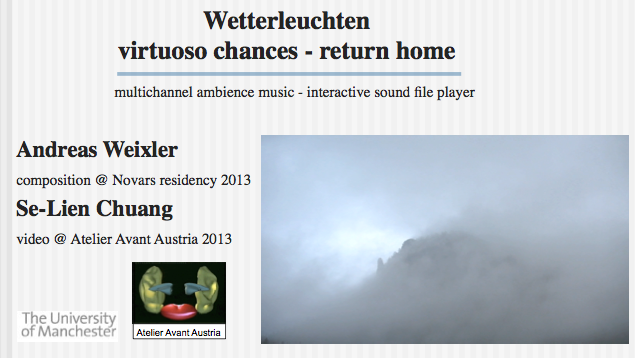 Tressenstein,
Steiermark (© Se-Lien Chuang)
Tressenstein,
Steiermark (© Se-Lien Chuang)
Andreas Weixler
Wetterleuchten
Virtuoso Chances - return home (2013)
multichannel ambience music
interactive sound file player
composition: Andreas Weixler @ Novars residency 2013
video: Se-Lien Chuang, Atelier Avant Austria
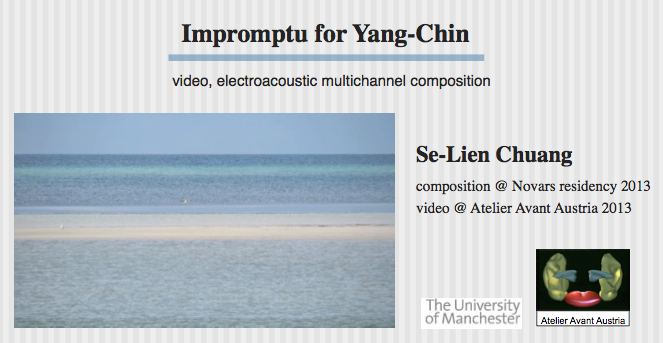 Indischer
Ozean, West Australien (© Se-Lien Chuang)
Indischer
Ozean, West Australien (© Se-Lien Chuang)
Se-Lien Chuang
Impromptu for Yang-Chin (2013)
electroacoustic music
composition: Se-Lien Chuang @ Novars residency 2013
video: Se-Lien Chuang, Atelier Avant Austria
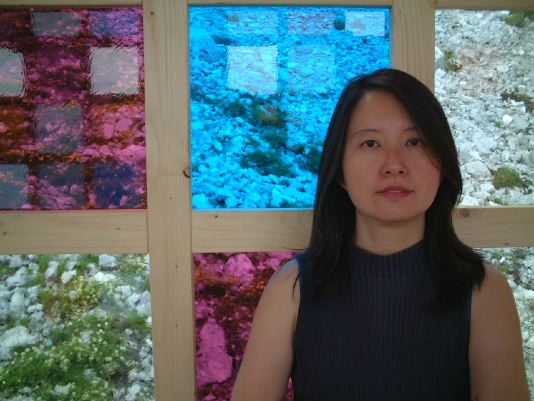 Foto:
Andreas Weixler
Foto:
Andreas Weixler
Se-Lien Chuang
composer, pianist and media artist, 1965 born in Taiwan, since 1991
residence in Austria.
The artistic and compositional emphases range from contemporary
instrumental composition/improvisation, computer music to
audiovisual interactivity.
Studies in composition (Beat Furrer), music and media technology
(Karlheinz Essl), piano/recorder, electro-acoustic music in Austria.
International productions, research stays and lectures as well as
numerous representations of compositions in Europe, Asia, North- and
South America: Salzburger Festspiele, ICMC
Perth/Ljubljana/Huddersfield/NYC/Belfast/Copenhagen, NYCEMF NYC,
SICMF Seoul, NIME New York, ISEA Singapore/Nagoya, IAMAS Japan, Ars
Electronica Linz, SONORITIES Festival Belfast, Electronic Music
Festival Basel, Ultraschall Festival für Neue Musik Berlin, Wien
Modern, Sumida Triphony Hall Tokio, National Theater Concert Hall
Taipeh, Computermusik Festival Montreal, European Electroacoustic
Music Brussels, NICE Amsterdam, SIBGRAPI Video Festival Gramado-RS,
among others.
Since 1996 jointly with Andreas Weixler running Atelier Avant
Austria, of which the key aspects are in the developments of
audiovisual interactive systems and audio/visual
realtime/non-realtime processing, computer music and algorithmic
composition.
http://avant.mur.at/chuang
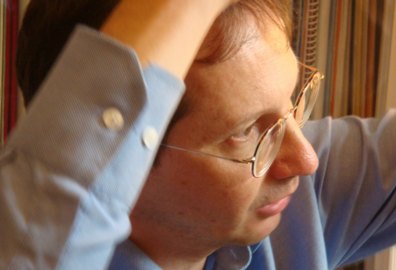 Foto:
Se-Lien Chuang
Foto:
Se-Lien Chuang
Andreas Weixler
born 1963 in Graz, Austria, is a composer for contemporary
instrumental composition, computer music and interactivity with an
special emphasis on audiovisual realtime processes and interactive
score. He studied contemporary composition at the University of Arts
in Graz, Austria with Andrzej Dobrowolski, Younghi Pagh-Paan and
diploma by Beat Furrer. His specialisation in computer music and his
concepts of composition, improvisation and audiovisual interactivity
lead to concerts, performances and lectures in Europe, Asia, North
and South America. His concepts got selected for performances at the
International Computer Music Conference ICMC 2013 Perth, 2012
Ljubljana, 2011 Huddersfield, 2010 New York, 2008 Belfast, NIME 2007
New York, also selected for a research paper presentation at ICMC
2013 Perth, ISEA 2008 – the International Symposium of
Electronic Arts, Singapore. among others.
Andreas Weixler is currently an associate university professor at
Bruckner-University Linz, Austria and a lecturer at InterfaceCulture
of the University of Arts in Linz and is also giving numerous
international lectures in Austria, Germany, England,
Northern-Ireland, USA, Japan, Taiwan, South-Corea a.o.
He founded
intermedia concert series as electronic access (Graz, Linz, Vienna
and London), Sonic Intermedia (ars electronic center Linz) and Sound
& Vision (Bruckner University Linz). In 1981 Andreas Weixler
founded Atelier Avant Austria for contemporary composition and media
arts and is running it since 1996 together with his partner Se-Lien
Chuang in numerous international cooperations.
http://avant.mur.at
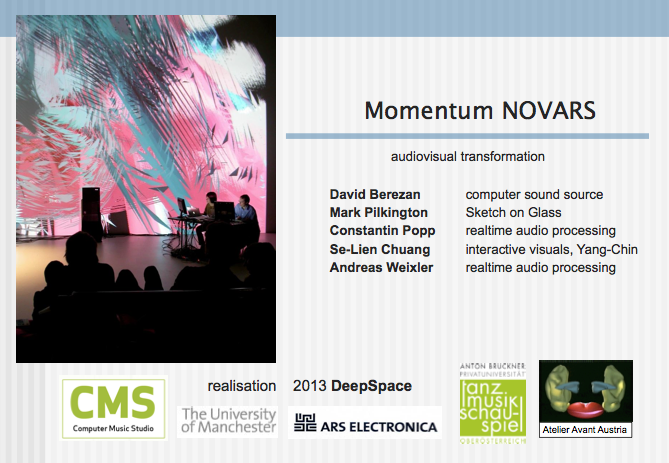 Foto: Gerald
Wolf
Foto: Gerald
Wolf
Momentum Novars
collective improvisation with interactive audiovisual realtime
processing
Se-Lien Chuang, Yang-Chin, interactive visuals *)
Andreas Weixler, realtime audio processing **)
David Berezan, computer
sound source ***)
Mark Pilkington, 'Sketch on Glass' ****)
Constantin
Popp, realtime audio processing *****)
*) modular filter patch with audio driven realtime video
processing in Max Msp Jitter by Se-Lien Chuang
**) SpectraSonic is a realtime audio software developed by
Andreas Weixler, it consists of multichannel granular synthesis,
spectral delay, controlled by virtuoso chances & machine
musicianship
***)
8-channels Max/MSP audio processing by David Berezan
****) 'Sketch on Glass' is an algorithm that abstracts
musical information from cognitive and symbolic models. The
real-time sound processing environment allows for one single
gestural movement to control several sound parameters at once in
order to produce a complex sound treatment. A combination of
manual, dynamic and visual event driven input processes was mapped
to sonic transform processes by Mark Pilkington
*****) live-patch in SuperCollider
(PLib) by Constantin Popp
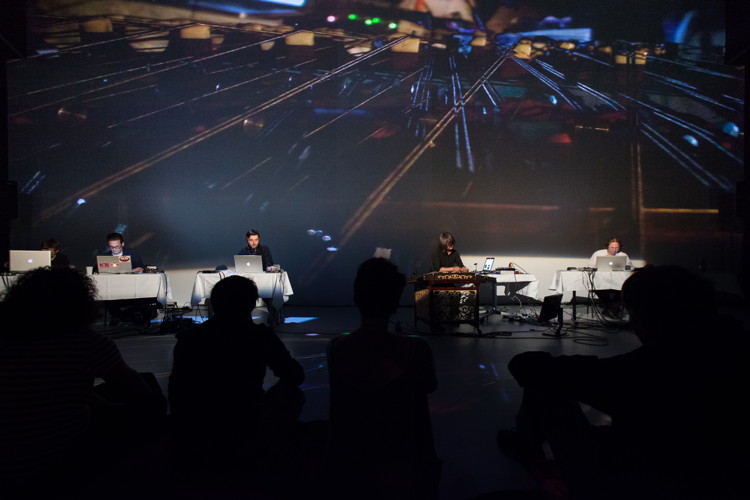 Foto: Florian Voggeneder, live at DeepSpace 2013
Foto: Florian Voggeneder, live at DeepSpace 2013
TEAM
Initiative: Andreas Weixler, Se-Lien Chuang, Gerfried Stocker, David
Berezan
Veranstaltungsbüro, Presse: Romana Gillesberger, Angelika Grabner
(ABPU), Martin Hieslmair (AEC)
Audio+EDV Technik: Jörg Lehner (ABPU), Martin Edtmayr
DeepSpace Technik: Julia Leitner, Thomas Kollmann, Florian Wanninger
(AEC)
CMS Musik- und Medien Studierende: Hassan Zanjirani Farahani
(Realisation, Docu), Daniel Rikker
TECH SET SIM13
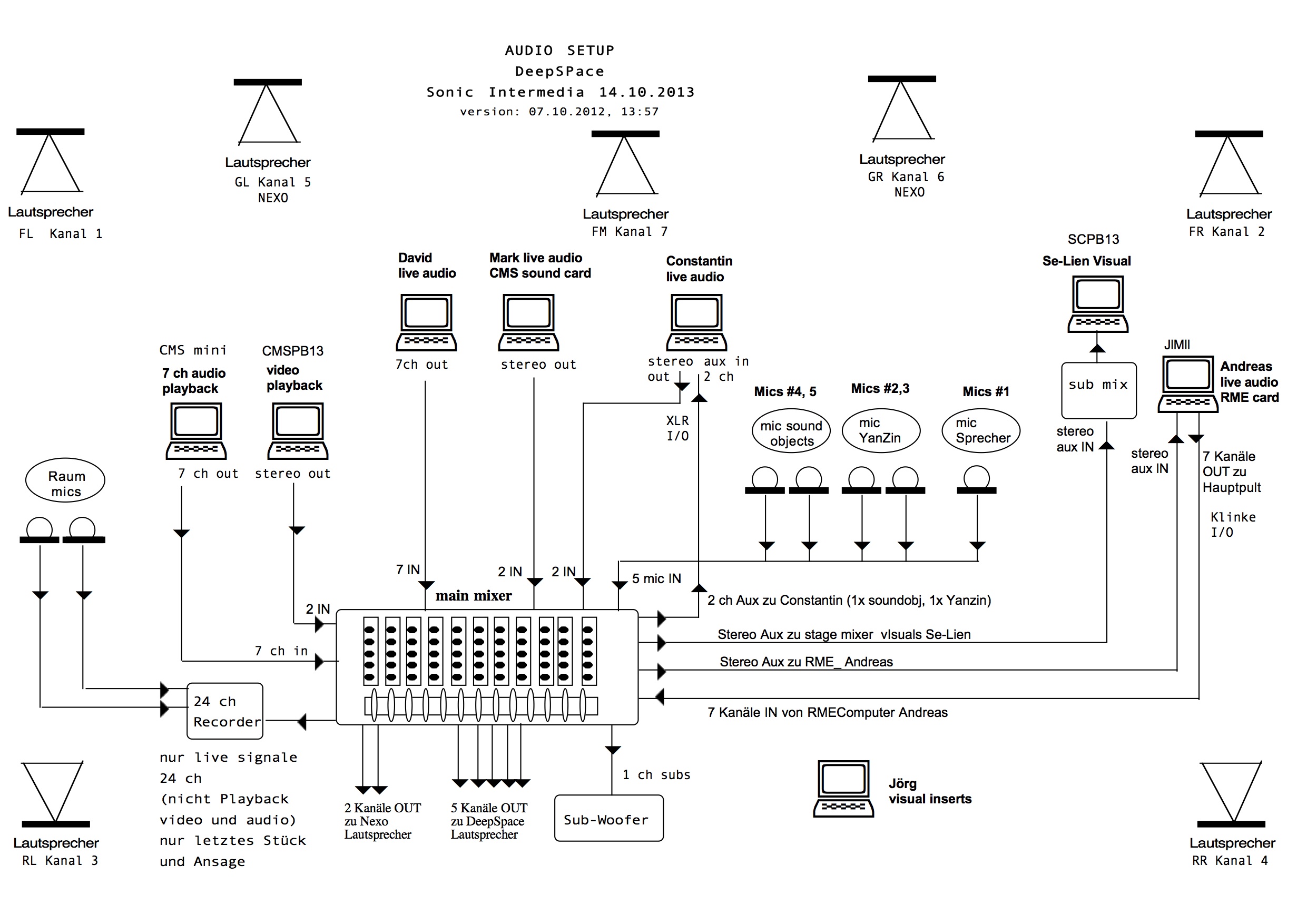
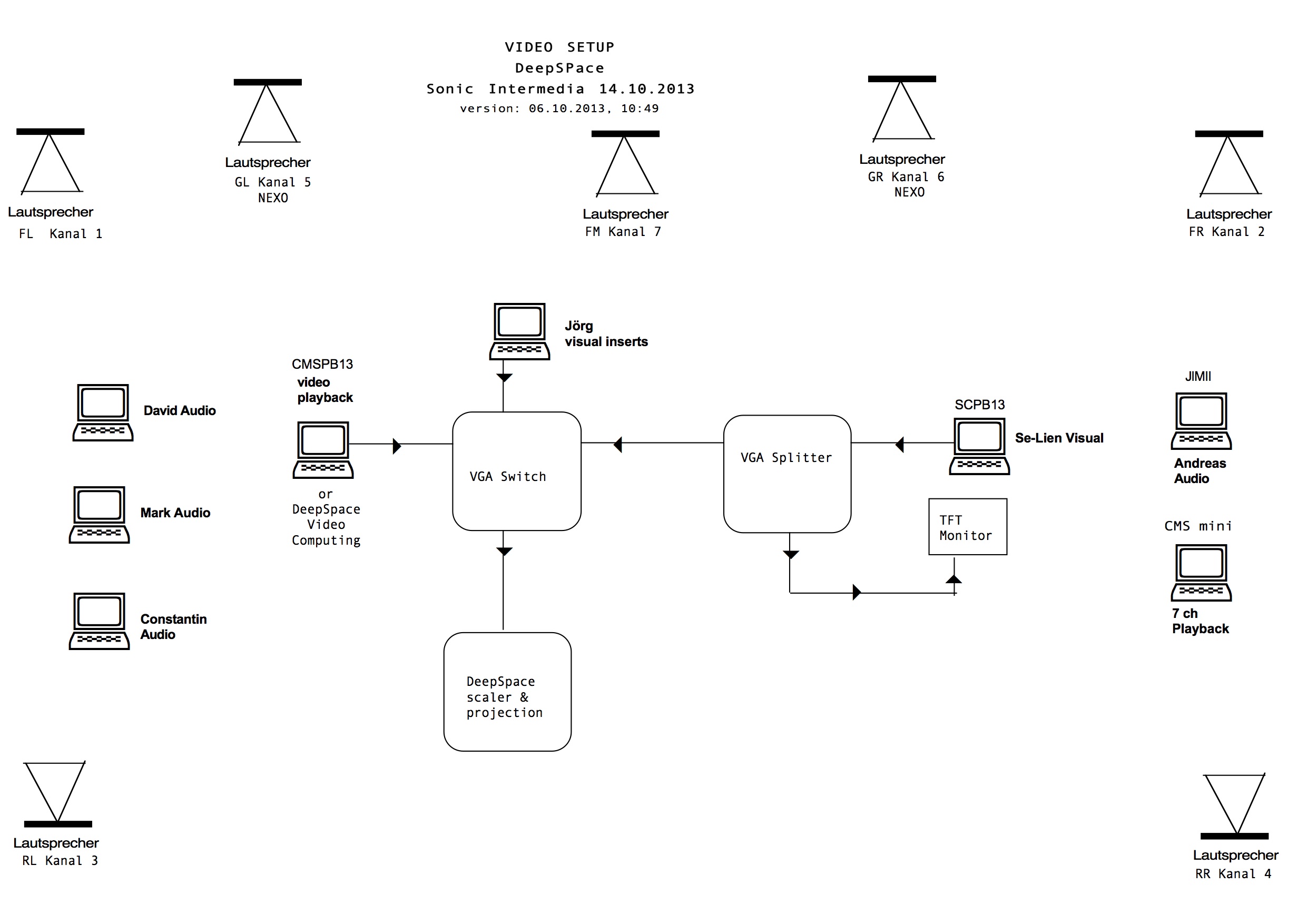
-> Programmplan
-> Display
preshow
-> timetable 14.10.13












 Foto
by Milapfest
Foto
by Milapfest
 videostill: Claudia Larcher
videostill: Claudia Larcher Foto: Malgorzata Cnota
Foto: Malgorzata Cnota video still: Mark
Pilkington
video still: Mark
Pilkington
 Foto: Glenn Boulter
Foto: Glenn Boulter  Tressenstein,
Steiermark (© Se-Lien Chuang)
Tressenstein,
Steiermark (© Se-Lien Chuang) Indischer
Ozean, West Australien (© Se-Lien Chuang)
Indischer
Ozean, West Australien (© Se-Lien Chuang) Foto:
Andreas Weixler
Foto:
Andreas Weixler Foto:
Se-Lien Chuang
Foto:
Se-Lien Chuang Foto: Gerald
Wolf
Foto: Gerald
Wolf Foto: Florian Voggeneder, live at DeepSpace 2013
Foto: Florian Voggeneder, live at DeepSpace 2013
